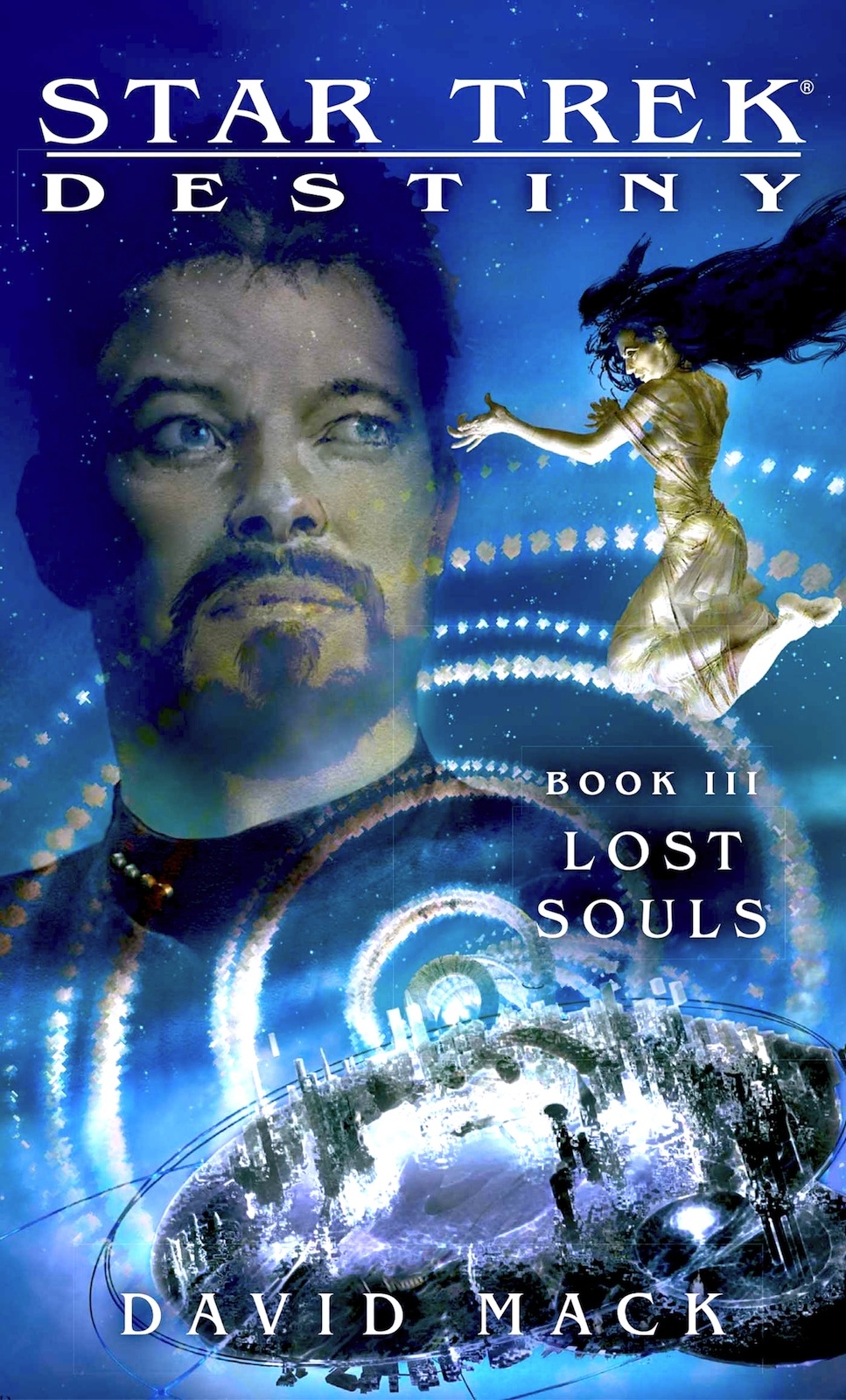
Note: This review goes into a VERY long digression on ethics in science fiction.
The planet-shattering, literally, conclusion to the
Star Trek Destiny story arc. The Borg have finally brought the entirety of their military assets to the Alpha Quadrant and are exterminating the whole of the Federation. Faced with oblivion on all sides and an
Andromeda-esque ending as the best seeming outcome, our heroes must figure out a way to guarantee civilization's survival. Part of what has made Star Trek Destiny so appealing is its avoidance of the usual
Star Trek-esque
deus ex machina that characterized the series--can it keep it up?
No, no it can't.
What prevents this from being bad is the ending is entirely consist with the themes of
Star Trek, carefully laid out, and worked for by our heroes from beginning to end. Furthermore, it has an ending which nicely wraps up the "Paradox of the Borg." The Paradox of the Borg is something that my fellow Trekkies and I discussed long and hard over Doritos, once. Basically, the Borg are innately anti-Trek in their theme.
If you believe the Borg are based on Doctor Who's Cybermen, you might actually believe this is by design. Doctor Who frequently has its protagonist run into purely-evil aliens. These aliens serve as personifications of Nazism, communism, and various other political ideologies so the idea of obliterating them is not quite so disgusting as it might be were they Klingons.
Even so, the show has the Doctor debate over these acts of xenocide as they challenge his brain that mass murder of an entire species could ever be justified. It's a brain teaser more than an ethical question, undermining arguments for genocide by showing the ridiculous lengths you'd have to go to in order to justify it in RL. Unfortunately, this bit of satire is frequently lost on fans who just think it's a justification of genocide (even if only in a fantasy environment).
Warhammer 40K is less subtle about its satire but equally mishandled by its fans.
The Paradox of the Borg is that in a series that is about finding the value in differences, there is a species with no value. The Borg exist only through enslaving others and destroy all that is different about people. They are the ghostly specter of the Other brought back to life and the only rational response to them is hatred. Hatred for what they stand for, hatred for what they represent. In a series about understanding, compromise, and peace--there can be none with the Borg.
Which, when you think about them, makes them crap villains since they undermine the series' entire theme. If forgiveness and love is not an option,
Star Trek's Federation is painfully naive and wrong about the universe. Yes, the Feddies can make peace with Klingons and Xindi but THOSE guys? Yeah, not happening.
I think
Star Trek's writers must have realized this on a subconscious level because the best episodes of the Borg are actually about trying to find the good in them. "Hugh", "Unity", and Seven of Nine's entire arc are about finding ways the Borg might peacefully co-exist with the Federation. I love
Star Trek: First Contact but but the Borg are zombies and exist to be shot at with a Tommy gun.
Star Trek Destiny: Lost Souls is about solving the riddle of how to live with the Borg without violating every ethical principle you hold dear. If you destroy the Borg, you're murdering trillions and justifying xenocide. If you leave the Borg alone, you're sanctioning the slavery of trillions. They're a race which exists on the violation of the soul and are seemingly impossible to reconcile with the Federation's values.
There's a bunch of stuff I could address in this book about Erika Hernandez's role, Captain Picard's breakdown, and Geordi LaForge making a principled stand in the face of genocide. I don't always agree with the characters, Geordi's refusal to build a super weapon based on Data's sacrifice to stop a similar one sounds good, but to refuse to do so even to save countless lives--it borders on sophistry. I had similar problems with
Insurrection as a fairly typical, 'stop people taking the locals' stuff' story becomes problematic when the 'stuff' in question is medical supplies.
I'm a fan of ethical dilemmas in my science fiction. "In the Pale Moonlight" has Sisko not only murder two people to bring the Romulans into the Dominion War on the Federation side, it also has him directly responsible for the thousands of Romulans who will likely die as a result of his actions.
Section 31 using a biological WMD on the Founders has been argued at my table many a time between my fellow fans--asking whether the Founders are a legitimate military target if their entire race is a gestalt. However, any fantasy fiction which justifies genocide has gone down a very slippery slope. In RL, George W. Bush used
24's contrived, "what if there's a nuclear bomb that needs to be stopped" to justify torture.
The book's heart is a reaffirmation of the Federation's values of tolerance, respect, and understanding in the face of an absolutely unthinkable situation. Maybe it ended on a
deus ex machina but the circumstances which precipitated it were ones as contrived as the resolution.
In real life, there is no such thing as purely evil human beings. There are people who choose to be evil and who are damaged, broken, or insane. We can only meet these people with compassion, refusal to submit, courage, and even forgiveness (if so warranted). I may not like the final choice of the book's central protagonist but the rest of it is a breath of fresh air in a world of very dark science-fiction.
10/10

 Agreed completely.
Agreed completely.
